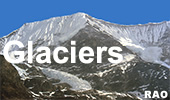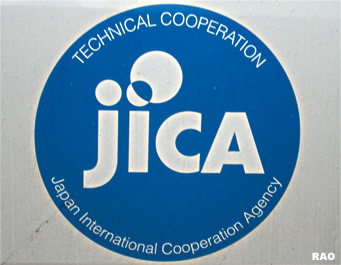| Bhutan's
glaciers and glacial lakes |
 |
Bhutan Glaciers - Glacial Lakes |
|
 |
Bhutan Glaciers - Glacial Lakes |
|
|
 |
|
Lakes
in Lunana with high GLOF (glacial lake outburst flood) risks
|
|
Glacial
Lake Outburst Floods (GLOF) |
 |
Nevertheless,
experts say money is needed urgently to carry out similar work on scores
of other glacial lakes if catastrophes are to be averted. "Part of our
work is to help the governments of Nepal and Bhutan find and focus on potentially
dangerous lakes, develop early warning systems, be able to warn communities
of an impending Glacial Lake Outburst Flood (GLOF), and to carry
out engineering works to reduce the threats. Some donor country governments
are backing our efforts but much more aid is needed. Solving this problem
is going to be costly because glacial lakes are situated in remote areas
which are difficult to reach," said Mr Shrestha.
Surendra
Shrestha, Regional Coordinator in Asia for UNEP's Division of Early Warning
and Assessment, said: "Our findings indicate that 20 glacial lakes in
Nepal and 24 in Bhutan have become potentially dangerous as a result of
climate change. We have evidence that anyone of these could, unless
urgent action is taken, burst its banks in five to 10 years time with potentially
catastrophic results for people and property hundreds of kilometres downstream.
These are the ones we know about. Who knows how many others, elsewhere
in the Himalayas and across the world, are in a similar critical state?"
Nevertheless,
experts say money is needed urgently to carry out similar work on scores
of other glacial lakes if catastrophes are to be averted. "Part of our
work is to help the governments of Nepal and Bhutan find and focus on potentially
dangerous lakes, develop early warning systems, be able to warn communities
of an impending Glacial Lake Outburst Flood (GLOF), and to carry
out engineering works to reduce the threats. Some donor country governments
are backing our efforts but much more aid is needed. Solving this problem
is going to be costly because glacial lakes are situated in remote areas
which are difficult to reach," said Mr Shrestha.

|
 |
| Klaus
Toepfer, Executive Director of UNEP, said: "Mountains were once considered
indomitable, unchanging and impregnable. But we are learning that they
are as vulnerable as the world's oceans, grasslands and forests to environmental
threats and insensitive, unfettered, development. Climate change is the
biggest threat facing humankind with extreme weather events, droughts and
rises in disease forecast for many parts of the globe over the coming decades".
"The findings from our joint studies in the Himalayas, the roof of the
world, reveals the extent of a new, and alarming, threat. It is not just
the risk to human lives, agriculture and property that should worry us.
Mountains are the world's water towers feeding the rivers and lakes upon
which all life depends. If the glaciers continue to retreat at the rates
being seen in places like the Himalayas, then many rivers and freshwater
systems could run dry, threatening drinking water supplies as well as fisheries
and wildlife. We now have another compelling reason to act to reduce emissions
of carbon dioxide and other greenhouse gases," said Mr Toepfer. |
|

|
Glacial
Lake Outburst Floods (GLOFs) are not a new phenomenon but there is
evidence that the frequency of such events has risen over the past three
decades.
For
example the Bhutan's Raphstreng Tsho glacial lake in the Pho Chhu River sub-basin measured 1.6 km
long, 0.96 km wide and was 80 metres deep in 1986.
The latest figures (1995)
show the lake has swollen to be 1.94 km long, 1.13 km wide and has a depth
of 107 metres. Its neighboring glacier could generate a GLOF up to two-and-a-half-times
that which caused major devastation in October 1994.
The 43 other glacial lakes, pin pointed in the survey and deemed to be
in a dangerous state, show similar patterns
The
filling of the lakes, and the threat of their mud and debris walls being
breached, is as a result of rising temperatures melting the glaciers. Satellite,
mapping and other surveys indicate that, for example, the glaciers in Bhutan are retreating at a rate of 30 to 40 metres a year
top
|
Japanese-aided capacity building project - Flood Forecasting And Warning System
|
 |
 |
The Japan international cooperation agency (JICA)will provide technical and financial support to boost capacity for glacier lake outburst flood (GLOF) and rainstorm flood forecasting and warning system in the country.
The project will be implemented over three years in the 11th plan (2013-18) by the hydro-met services department in collaboration with department of disaster management.
Hydro-met service officials said the project would improve capacity of national weather, flood forecasting and warning centre (NWFFWC) on GLOF and rainstorm flood risk assessment, as well as emergency information sharing amongst relevant agencies. |
|
An early warning system for GLOF and rainstorm will also be developed and maintained in the pilot basins of Mangdechu and the Chamkharchu.
"As of now, we don't have a dedicated centre for weather or flood forecast," an official from the hydro-met service department, said. "With the NWFFWC, we can expect a more systematic method of forecast that will provide reliable and accurate information."
The current weather forecast used is the MetGIS model that was developed by the hydro-met service department in collaboration with the department of Met and geophysics of Vienna university in 2010. Prediction for Bhutan also depends on the weather forecast of the whole South Asian region.
The early warning system that will be set up at the basins of Mangdechu and Chamkharchu will help downstream communities of Trongsa, Bumthang and Zhemgang, should a GLOF or rainstorm flood occur.
Such warning systems are necessary as there were lakes in Trongsa and Bumthang listed among the 25 potential dangerous lakes in the country.
"While we can't prevent disasters from occurring, we can at least minimise the damages or risks," a hydromet official said. "That's the sole objective."
Disaster response will also be targeted within the project that is expected to cost approximately USD 3 to 4M.
JICA had deputed a survey team to conduct the feasibility and detailed design of the project.
The minutes of the meeting between JICA and hydro-met department was signed yesterday by the director of detailed planning survey team of JICA, Shiro Nakasone, and the director of the hydro-met service department, Karma Tshering.
JICA is also expected to depute long- and short-term experts to implement the project.A bilateral agreement on the project will be signed between JICA and the gross national happiness commission.
| Contributed by Kinga Dema, KUENSEL, Bhutan's National Newspaper, October 2012 |
 |

|
top
| Information on Bhutan |
 |
|
Links
|
 |
 |
 |
External
links |
 |
 |
 |
 |
 |
| GRID-Arendal
News |
NASA's
Global Change Master Directory |
United
Nations Environment Programme |
World
Glacier Monitoring Service |
International
Centre for Integrated Mountain Development |
| Japan international cooperation agency (JICA) |
 |
 |
 |
 |
|




